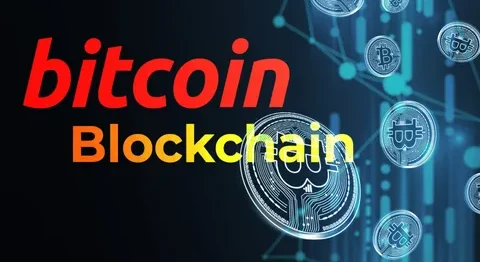Bitcoin blockchain civil war threatens to reshape the foundation of digital currency. After years of relative stability following previous scaling debates, Bitcoin’s community finds itself divided once again—this time over fundamental questions about how the blockchain should be used. This Bitcoin blockchain civil war isn’t just about technical specifications; it represents a philosophical battle between competing visions for the world’s first cryptocurrency. As Bitcoin approaches two decades since its creation, stakeholders must confront difficult questions: Should BTC remain purely a store of value, or can it evolve to support new applications? The answer could determine Bitcoin’s relevance in an increasingly competitive digital asset landscape.
Bitcoin Blockchain Civil War
The current Bitcoin blockchain civil war stems from tensions between Bitcoin purists and innovation advocates. This conflict centres on whether Bitcoin’s blockchain should remain exclusively focused on peer-to-peer electronic cash transactions or embrace additional functionalities like smart contracts, tokenisation, and decentralised applications.
The Historical Context of Bitcoin Conflicts
Bitcoin has experienced significant internal conflicts before. The 2017 Bitcoin civil war over block size limits resulted in the creation of Bitcoin Cash, demonstrating how ideological differences can fragment communities. That dispute focused on scalability—whether to increase block sizes or implement second-layer solutions like the Lightning Network.
Today’s Bitcoin blockchain civil war represents a more nuanced debate. Rather than simply arguing about transaction capacity, stakeholders are questioning Bitcoin’s fundamental purpose in the evolving cryptocurrency ecosystem. With Ethereum dominating smart contracts and newer blockchains offering advanced features, some Bitcoin advocates believe BTC must adapt or risk obsolescence.
The Core Issues Driving the Bitcoin Blockchain Dispute
Several key factors fuel the ongoing Bitcoin blockchain civil war:
Protocol Changes and Upgrades: Proposed modifications to Bitcoin’s core protocol have sparked intense debate. Innovations like Ordinals (enabling NFT-like inscriptions on Bitcoin) and BRC-20 tokens have divided the community. Supporters view these developments as a natural evolution, while critics argue they compromise Bitcoin’s primary function as digital money.
Network Congestion and Fee Structures: New use cases have contributed to network congestion, driving transaction fees higher. During peak periods, fees have surged to levels that make small transactions economically unviable. This creates tension between users prioritising different applications—some need affordable transfers while others willingly pay premium fees for novel functionalities.
Philosophical Differences: The Bitcoin blockchain civil war ultimately reflects deeper philosophical divisions. Bitcoin maximalists maintain that BTC should remain focused on being sound money—censorship-resistant, decentralised, and immutable. Conversely, pragmatists argue that blockchain technology should evolve with market demands, incorporating features that enhance utility and adoption.
The Key Factions in the Bitcoin Blockchain War
Understanding the Bitcoin blockchain civil war requires examining the distinct groups shaping this debate.
Bitcoin Purists and Maximalists
Bitcoin purists represent the conservative faction in this blockchain civil war. They advocate for preserving Satoshi Nakamoto’s original vision—a peer-to-peer electronic cash system free from centralised control. This group views Bitcoin primarily as digital gold, emphasising security, decentralisation, and monetary properties over technological experimentation.
Maximalists argue that Bitcoin’s value proposition lies in its simplicity and resistance to change. They contend that adding complexity introduces vulnerabilities and distracts from Bitcoin’s core mission. Many purists view developments like Ordinals as blockchain spam that congests the network without providing genuine value.
Innovation Advocates and Builders
On the opposite side of the Bitcoin blockchain civil war stand innovation advocates who believe Bitcoin must evolve to remain competitive. These developers and entrepreneurs argue that blockchain technology has matured beyond simple value transfer, and Bitcoin should incorporate proven innovations from other networks.
This faction supports protocols enabling smart contracts on Bitcoin, tokenisation platforms, and Layer 2 solutions that expand functionality without compromising base layer security. They contend that restricting Bitcoin’s capabilities artificially limits its potential impact and adoption.
Miners and Economic Stakeholders
Miners occupy a unique position in the Bitcoin blockchain civil war. Their economic incentives don’t always align neatly with either ideological camp. Miners benefit from higher transaction fees, which new use cases like Ordinals generate. However, they also depend on Bitcoin’s long-term viability and widespread adoption.
Large Bitcoin holders and institutional investors similarly navigate competing interests. While they appreciate Bitcoin’s stability and predictability, they also recognise that stagnation could diminish BTC’s market position relative to more adaptable cryptocurrencies.
Technical Developments Fueling the Bitcoin Blockchain Conflict
Several technical innovations have intensified the Bitcoin blockchain civil war, each triggering passionate responses from different community segments.
Ordinals and Digital Artifacts
The introduction of Ordinals in early 2023 marked a turning point in the Bitcoin blockchain civil war. This protocol enables users to inscribe data—including images, text, and code—directly onto individual satoshis (Bitcoin’s smallest unit), effectively creating NFT-like artifacts on Bitcoin’s blockchain.
Ordinals supporters celebrate this innovation as a breakthrough that unlocks Bitcoin’s potential beyond simple transactions. They argue that utilising Bitcoin’s security and decentralisation for digital collectibles and art represents a natural extension of blockchain technology.
Critics vehemently oppose Ordinals, characterising inscriptions as an abuse of Bitcoin’s blockchain. They argue that storing arbitrary data on-chain bloats the blockchain, increases costs for regular users, and deviates from Bitcoin’s intended purpose. Some have called for protocol changes to prevent or discourage Ordinals transactions.
BRC-20 Tokens and Bitcoin-Based Assets
BRC-20 tokens emerged following Ordinals, enabling fungible token creation on Bitcoin’s blockchain. This development further escalated the Bitcoin blockchain civil war, as it brought Ethereum-style tokenisation to Bitcoin without requiring smart contract capabilities.
While BRC-20 tokens demonstrated Bitcoin’s flexibility, they also contributed to network congestion and fee volatility. During peak BRC-20 activity, transaction fees spiked dramatically, pricing out users who simply wanted to transfer Bitcoin. This practical consequence transformed theoretical debates into tangible user experience issues.
Taproot and Future Protocol Upgrades
The Taproot upgrade, activated in November 2021, inadvertently enabled many developments fueling the current Bitcoin blockchain civil war. Designed to enhance privacy and efficiency, Taproot’s increased scripting capabilities created opportunities for innovations like Ordinals.
This unintended consequence has made the Bitcoin community more cautious about future upgrades. Proposals for additional protocol changes now face intense scrutiny, with stakeholders demanding a comprehensive analysis of potential use cases—both intended and unintended. The blockchain civil war has effectively slowed Bitcoin’s development roadmap as consensus becomes increasingly difficult to achieve.
Economic Implications of the Bitcoin Blockchain War
The Bitcoin blockchain civil war extends beyond technical and philosophical debates, carrying significant economic consequences for the entire cryptocurrency ecosystem.
Transaction Fees and Network Accessibility
One immediate impact involves transaction fee volatility. When new use cases compete for block space, fees fluctuate unpredictably. Users transferring small amounts find Bitcoin increasingly impractical during congestion periods, potentially driving them toward alternative cryptocurrencies or payment networks.
This dynamic creates a feedback loop in the Bitcoin blockchain civil war. High fees validate concerns of purists who oppose blockchain experimentation, while simultaneously demonstrating market demand for diverse use cases that innovation advocates champion.
Bitcoin’s Market Position and Competition
The Bitcoin blockchain civil war occurs against a backdrop of intense competition. Ethereum remains dominant in decentralised finance and NFTs, while newer blockchains offer superior speed and lower costs. Bitcoin’s market leadership isn’t guaranteed—the network must balance preservation of core principles with adaptation to changing market needs.
If Bitcoin fails to accommodate user demands for expanded functionality, capital and developer talent may flow toward more flexible platforms. Conversely, compromising Bitcoin’s security or decentralisation could undermine its fundamental value proposition, potentially triggering loss of confidence and market share.
Mining Economics and Network Security
Bitcoin’s security depends on mining incentives. The Bitcoin blockchain civil war affects mining economics through its impact on transaction fees. As block subsidies decrease through halving events, miners increasingly rely on transaction fees for revenue.
New use cases generating high fee activity benefit miners financially, supporting network security. However, if these use cases drive away regular users or destabilise Bitcoin’s perception as reliable money, long-term mining incentives could suffer. This creates complex trade-offs that different stakeholders evaluate differently.
Comparing Past Bitcoin Conflicts to the Current Blockchain War
The current Bitcoin blockchain civil war shares similarities with historical disputes while presenting unique challenges.
The 2017 Block Size Debate
The 2017 Bitcoin civil war centred on a straightforward technical question: should Bitcoin increase its block size to accommodate more transactions? This debate split the community, ultimately producing Bitcoin Cash through a contentious hard fork.
Today’s Bitcoin blockchain civil war involves more subtle considerations. Rather than a single parameter change, the community confronts questions about blockchain purpose, acceptable use cases, and development philosophy. This complexity makes resolution more challenging than previous disputes.
Lessons from Bitcoin Cash and Other Forks
Previous Bitcoin forks offer instructive lessons for the current blockchain civil war. Bitcoin Cash, Bitcoin SV, and other variants all emerged from ideological disagreements, yet none achieved Bitcoin’s market dominance or network effects.
These precedents suggest that fragmenting Bitcoin’s community carries significant risks. Network effects, brand recognition, and accumulated trust represent valuable assets that shouldn’t be squandered through unnecessary division. Many participants in the current Bitcoin blockchain civil war remember these lessons and seek compromise solutions that preserve Bitcoin’s unity.
Potential Resolutions to the Bitcoin Blockchain Civil War
Various pathways could resolve or mitigate the ongoing Bitcoin blockchain civil war, each with distinct advantages and challenges.
Layer 2 Solutions and Sidechains
Layer 2 protocols like the Lightning Network offer a potential middle ground in the Bitcoin blockchain civil war. By moving certain transactions off-chain while maintaining Bitcoin’s base layer security, Layer 2 solutions can expand functionality without compromising core principles.
Similarly, sidechains and merged-mining approaches enable experimentation with new features while keeping Bitcoin’s main blockchain focused on its primary purpose. These architectures could satisfy innovation advocates without alarming purists concerned about base layer complexity.
Protocol Governance and Community Consensus
Effective governance mechanisms could help manage the Bitcoin blockchain civil war constructively. While Bitcoin intentionally lacks formal governance structures, informal processes exist through which stakeholders coordinate and reach consensus.
Improving these mechanisms—perhaps through more structured proposal processes, clearer evaluation criteria, and enhanced communication channels—could facilitate productive dialogue. The Bitcoin Improvement Proposal (BIP) process represents one framework, though it requires evolution to address contemporary challenges effectively.
Market-Driven Outcomes
Market forces may ultimately resolve the Bitcoin blockchain civil war. If certain use cases prove valuable enough, users will pay the fees necessary to support them, regardless of ideological objections. Conversely, if innovations fail to generate sustainable demand, they’ll naturally decline without requiring protocol changes.
This market-driven approach appeals to Bitcoin’s libertarian philosophy, allowing decentralised decision-making rather than centralised planning. However, it also means periods of uncertainty and volatility as the ecosystem experiments and adjusts.
The Future of Bitcoin Amid the Blockchain Civil War
Looking forward, the Bitcoin blockchain civil war will likely shape cryptocurrency’s trajectory for years to come.
Institutional Adoption and Regulatory Considerations
Institutional investors increasingly view Bitcoin as a legitimate asset class, particularly following the approval of Bitcoin ETFs. These stakeholders bring different priorities to the Bitcoin blockchain civil war. Institutions typically prioritise stability, predictability, and regulatory compliance over rapid innovation.
Regulatory developments also influence the blockchain civil war. Clear regulatory frameworks could advantage certain use cases while constraining others, potentially tipping the balance between competing factions.
Technological Evolution and Cross-Chain Integration
Technological progress may render some aspects of the Bitcoin blockchain civil war obsolete. Cross-chain bridges, wrapped Bitcoin tokens, and interoperability protocols enable Bitcoin holders to access functionality on other networks without changing Bitcoin itself.
These solutions could satisfy demand for expanded capabilities while preserving Bitcoin’s conservative base layer. Users wanting smart contracts or complex applications could utilise wrapped BTC on platforms designed for those purposes, while Bitcoin’s blockchain remains focused on secure value transfer.
Community Unity and Bitcoin’s Core Values
Ultimately, the Bitcoin blockchain civil war tests the community’s ability to balance competing values—innovation versus stability, inclusivity versus focus, growth versus preservation. Bitcoin’s greatest strength has always been its community’s commitment to decentralisation and censorship resistance.
Maintaining these core values while accommodating legitimate innovation requires wisdom, patience, and good faith engagement from all stakeholders. The community must distinguish between essential principles that justify resistance and preferences that warrant flexibility.
Conclusion
The Bitcoin blockchain civil war represents more than a technical dispute—it embodies fundamental questions about cryptocurrency’s purpose and potential. As Bitcoin approaches maturity as a technology and asset class, these tensions were perhaps inevitable. Different stakeholders naturally develop divergent priorities as the ecosystem expands and diversifies.
Rather than viewing the Bitcoin blockchain civil war as exclusively destructive, the community might recognise it as evidence of Bitcoin’s vitality and relevance. Technologies that no longer matter don’t inspire passionate debates. The intensity of current discussions reflects Bitcoin’s continued importance in the digital economy.



